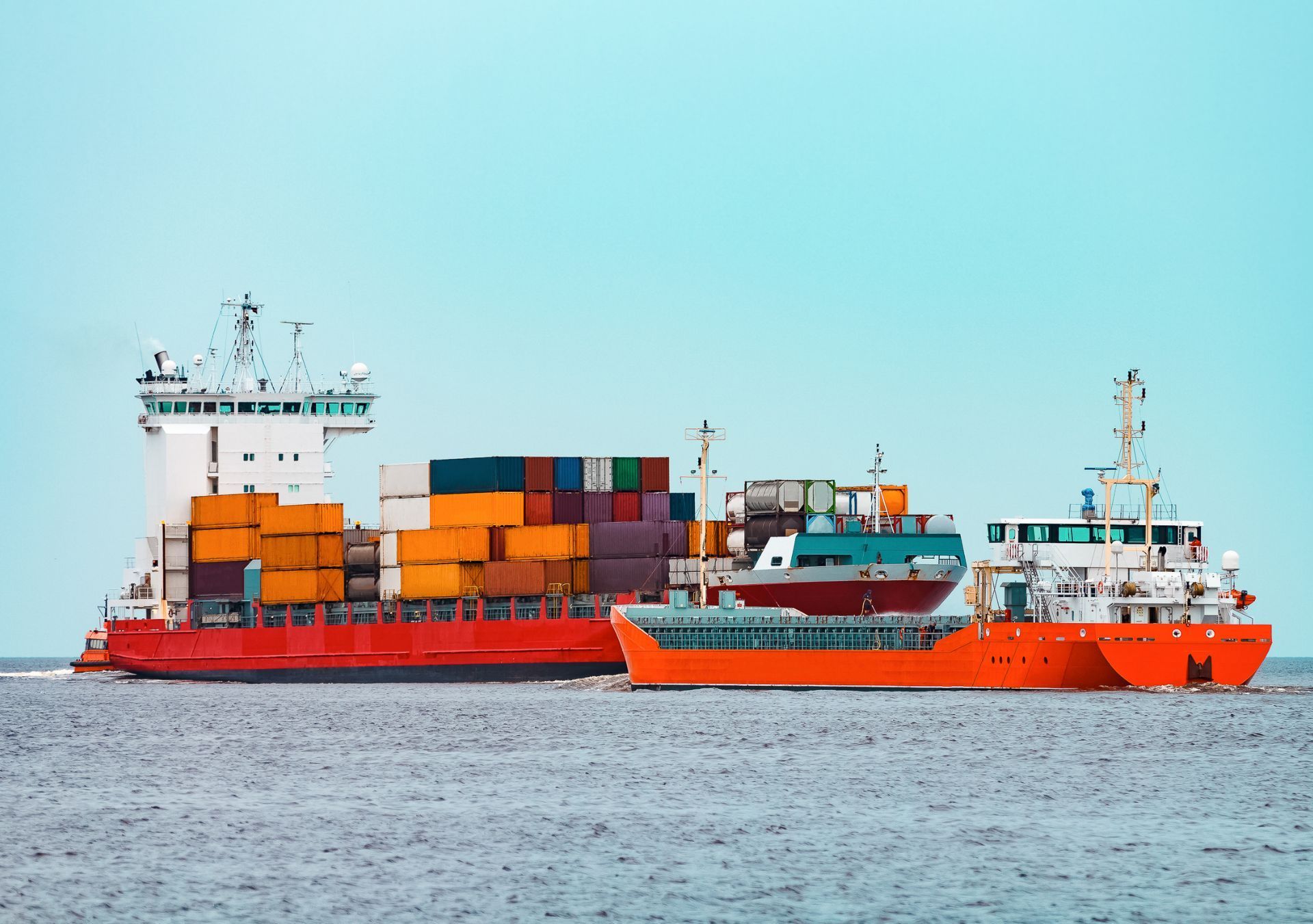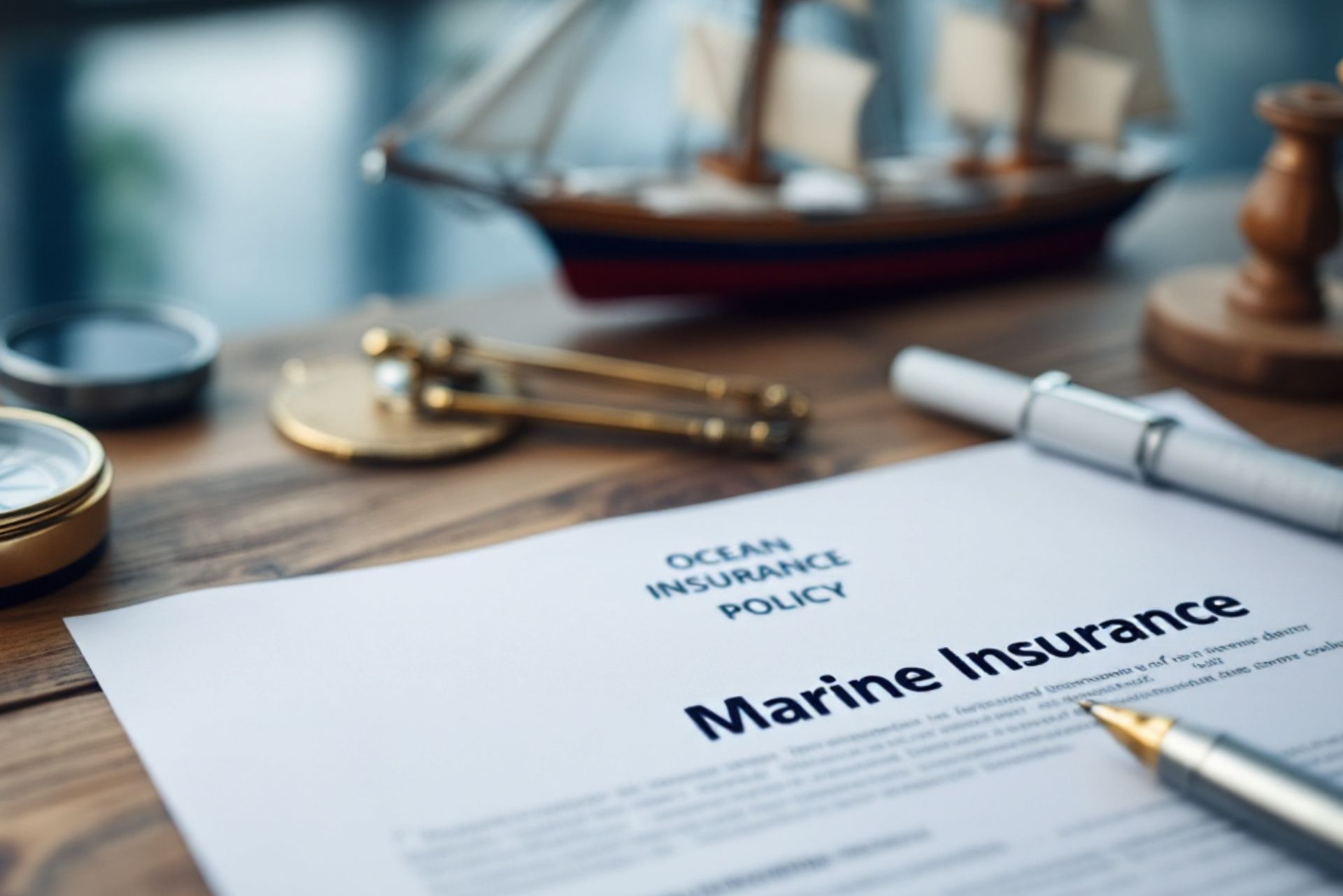
Most Common Business Policies
Index
Contact Us
Ocean Marine Insurance is a critical component of the maritime industry, especially for those operating in or around New York. This article will explore various aspects of ocean marine insurance, focusing on its importance, policies, challenges, and future trends. Whether you are a shipowner, a cargo shipper, or part of a logistics company, understanding this insurance type is vital for successful operations.
Understanding Ocean Marine Insurance
Ocean Marine Insurance provides coverage for loss or damage to ships and various types of cargo. It is a specialized sector designed to protect against the unique risks faced in maritime operations. The significance of this form of insurance cannot be overstated, considering the high stakes involved in shipping and transportation across oceans.
Definition and Importance of Ocean Marine Insurance
The primary goal of ocean marine insurance is to safeguard vessels and cargo against risks associated with maritime operations—be it weather disturbances, piracy, or accidents during transit. Given the scale of shipping worldwide, this insurance is vital for companies to mitigate financial losses arising from unforeseen incidents.
For businesses relying on maritime transport, having the right coverage not only protects their assets but also enhances their credibility with clients. Clients feel more secure knowing that their goods are insured during transit, which can lead to increased business opportunities. Furthermore, in an era where global trade is expanding rapidly, the ability to demonstrate comprehensive insurance coverage can serve as a competitive advantage, allowing companies to negotiate better terms with suppliers and customers alike.
Key Components of Ocean Marine Insurance
There are several critical elements that comprise ocean marine insurance policies. These include:
- Hull Insurance: This covers physical damage to the ship itself.
- Cargo Insurance: This provides protection against loss or damage to goods while in transit.
- Protection and Indemnity (P&I) Insurance: This covers liabilities like crew injury or environmental damage.
- Freight Insurance: This ensures payment for freight lost due to cargo claims.
Each of these components plays a vital role in offering comprehensive coverage for maritime operations, allowing businesses to handle risks effectively. In addition to these core components, many policies also include clauses for additional risks such as delays caused by port congestion or geopolitical tensions that might affect shipping routes. This adaptability ensures that businesses can tailor their insurance packages to meet the specific challenges they face, reflecting the dynamic nature of global shipping.
Moreover, the underwriting process for ocean marine insurance can be quite complex, as insurers must assess various factors including the type of cargo, the shipping routes, and the historical performance of the vessel. This thorough evaluation helps in determining the appropriate premium and coverage limits, ensuring that both the insurer and the insured are adequately protected against potential losses. As technology advances, many insurers are also incorporating data analytics and predictive modeling to enhance their risk assessment capabilities, further refining the insurance offerings in this critical sector.

New York Ocean Marine Insurance Policies
In New York, insurers offer a variety of policies tailored to meet the specific needs of marine operators. Understanding these policies is crucial for selecting the right one for your business.
Types of Policies Available
New York offers several tailored marine insurance policies, including:
- Customized Cargo Policies: Designed for businesses with specific cargo needs.
- General Liability Policies: To cover overall operational risks.
- Specialized Hull Policies: For unique vessel specifications or operational needs.
Depending on your maritime business type and size, you will find that these policies can vary significantly in terms of coverage and premiums. For instance, a small fishing operation might prioritize cargo insurance to protect their catch, while a larger shipping company may require comprehensive hull and liability coverage to safeguard against a variety of operational risks. Understanding the nuances of each policy type allows businesses to tailor their insurance portfolio to better fit their operational realities.
Coverage and Limitations
While marine insurance provides extensive coverage, it also comes with limitations. Policies may exclude certain conditions like:
- Acts of War: Generally excluded unless specifically included.
- Wear and Tear: Regular maintenance issues may not be covered.
- Categories of Cargo: Certain high-risk items may be excluded from coverage.
It is essential to read the policy fine print to fully understand what is covered and what is not, as this will help avoid potential disputes at the time of a claim. Additionally, it is wise for marine operators to consider endorsements or riders that can extend coverage to include specific risks pertinent to their operations. For example, businesses involved in international shipping may want to add coverage for piracy or political unrest in certain regions, which can significantly impact their operations. By proactively addressing these potential gaps in coverage, marine operators can better safeguard their investments and ensure smoother sailing through the complexities of maritime insurance.
The Role of New York in Ocean Marine Insurance
New York has established itself as a significant hub for ocean marine insurance due to its strategic location, extensive maritime traffic, and historical influence in the shipping industry.
New York's Maritime History and Insurance
Dating back to the early days of trade in America, New York has a rich maritime history. The bustling ports facilitated the growth of shipping companies and, consequently, the emergence of marine insurance as a vital industry. This long-standing history has shaped today's policies and business practices.
Many of the world's largest marine insurance providers are based in New York, taking advantage of the state's regulatory environment and its reputation within the global maritime community. The establishment of the New York Marine Insurance Company in the 18th century marked a pivotal moment in the industry, as it set standards for underwriting practices that are still referenced today. This legacy of innovation and leadership continues to attract maritime businesses and professionals to the area, fostering a dynamic ecosystem of expertise and resources.
Current Trends in New York's Marine Insurance Industry
As the marine industry evolves, so do the trends in ocean marine insurance. Currently, several trends are affecting the landscape:
- Technology Integration: Insurers are increasingly leveraging technology for policy management and claims processing.
- Increased Focus on Cyber Risk: As vessels become more technologically dependent, cyber insurance is gaining importance.
- Green Compliance: Policies now reflect environmental considerations linked to maritime operations.
Understanding these trends can help stakeholders make informed decisions when selecting insurance policies or partners. Moreover, the rise of big data analytics is revolutionizing risk assessment, allowing insurers to evaluate potential hazards more accurately and tailor coverage to meet the unique needs of each client. Additionally, the shift towards sustainability in maritime operations is prompting insurers to develop specialized products that incentivize eco-friendly practices, such as reduced premiums for vessels that comply with green regulations. This evolving landscape not only enhances the resilience of the marine insurance sector but also aligns it with broader global efforts to promote sustainability and technological advancement.
Choosing the Right Ocean Marine Insurance in New York
With numerous options available, choosing the right ocean marine insurance policy in New York can seem overwhelming. However, considering certain factors can simplify the process significantly.
Factors to Consider When Selecting a Policy
When evaluating your options for ocean marine insurance, consider:
- Coverage Adequacy: Ensure the policy covers your specific needs.
- Cost: Understand premium rates and what you are paying for.
- Claims Process: Research how insurers handle claims to ensure a smooth experience.
- Provider Reputation: Choose an insurer with solid financial stability and a good track record.
Taking these factors into account will help you find a policy that aligns with your maritime operations and risk profile. Additionally, it’s essential to consider the geographical scope of your coverage. New York's bustling ports and busy shipping lanes can expose vessels to unique risks, including piracy, severe weather, and port congestion. Therefore, a policy that offers global coverage or specific endorsements for high-risk areas may be more beneficial for your operations.
Tips for Comparing Insurance Providers
When comparing marine insurance providers, here are some practical tips:
- Request Quotes: Obtain and compare quotes from multiple insurers for similar coverage.
- Consult Peers: Speak with others in the industry about their experiences with different providers.
- Check Reviews: Look into reviews and ratings of companies online to gauge customer satisfaction.
These strategies will help you make a well-informed choice about which insurer is right for your marine insurance needs. Furthermore, consider the importance of understanding policy exclusions and limitations. Some policies may not cover certain types of cargo or may have restrictions based on the vessel's age or condition. By thoroughly reviewing the fine print and asking questions, you can avoid unexpected gaps in coverage that could jeopardize your operations. Engaging with an insurance broker who specializes in marine insurance can also provide valuable insights and help tailor a policy that meets your specific requirements.

While having an insurance policy is essential, understanding the claims process is equally crucial. An effective claims process can significantly impact the ease of recovering losses. In the realm of ocean marine insurance, where the stakes can be particularly high due to the unpredictable nature of maritime activities, a clear grasp of the claims process can make all the difference in ensuring swift and fair compensation.
Understanding the Claims Process
Typically, the claims process involves several steps:
- Notification: Inform your insurer about the incident as soon as possible.
- Documentation: Gather necessary documents, including policy details, incident descriptions, and any supporting evidence.
- Investigation: The insurer will investigate the claim to assess its validity.
- Resolution: Post-investigation, the insurer will either approve or deny the claim.
Understanding these steps helps streamline the process, enabling faster resolutions to claims. It is also advisable to familiarize yourself with the specific types of incidents that are covered under your policy, such as cargo damage, vessel loss, or liability claims. Each of these scenarios may have unique requirements and nuances that can affect how your claim is processed. Moreover, being prepared with a checklist of what to expect at each stage can alleviate some of the stress that often accompanies the claims process.
Common Challenges and How to Overcome Them
Claims can come with challenges, such as delays or disputes. To mitigate these issues:
- Maintain Clear Communication: Regularly engage with your insurer throughout the claims process.
- Keep Detailed Records: Document all interactions and maintain records of incidents that led to claims.
- Know Your Policy: Familiarizing yourself with your insurance terms will help you advocate for your claims rights more effectively.
Proactive measures will help in navigating common hurdles associated with claims effectively. Additionally, understanding the common reasons for claim denial can empower you to avoid pitfalls. For instance, claims may be denied due to late notifications or insufficient documentation. Therefore, being meticulous in your approach and ensuring that you meet all deadlines and requirements is vital. Furthermore, seeking assistance from a marine insurance broker or a claims adjuster can provide valuable insights and guidance, especially in complex situations where expert knowledge can facilitate a smoother claims experience.
Regulatory Aspects of Ocean Marine Insurance in New York
The ocean marine insurance sector is heavily regulated to ensure fairness and compliance. Understanding the regulatory environment is essential for navigating this complex market.
State Regulations and Compliance
New York state has established comprehensive regulations that govern marine insurance. These regulations aim to protect consumers from unfair practices while ensuring financial fidelity from insurers. Entities operating in this space must comply with state laws, including licensing requirements and filing protocols.
Regulatory compliance also includes provisions regarding financial reserves held by insurers, ensuring they can meet claim obligations when they arise. Furthermore, the New York Department of Financial Services (NYDFS) plays a crucial role in overseeing these regulations, conducting regular audits and assessments to ensure that insurers maintain appropriate practices. This oversight is vital for fostering a stable insurance marketplace, where both insurers and policyholders can operate with confidence.
Impact of International Maritime Laws
As an international trade hub, New York's marine insurance sector is influenced by international maritime laws. Regulations such as the Hague-Visby Rules or the United Nations Convention on Contracts for the International Sale of Goods can impact how marine insurance policies are constructed and enforced. Understanding these international regulations helps stakeholders align their practices with global standards.
Moreover, the interplay between local regulations and international maritime laws can lead to complex scenarios for insurers and policyholders alike. For instance, when a claim arises from a shipment that crosses multiple jurisdictions, the applicable laws may vary significantly, complicating the claims process. Insurers must be well-versed in both sets of regulations to effectively navigate these challenges and ensure that they are providing adequate coverage while also adhering to both local and international legal frameworks. This duality not only emphasizes the importance of regulatory knowledge but also highlights the need for ongoing education and training within the marine insurance industry to keep pace with evolving laws and practices.
The Future of Ocean Marine Insurance in New York
Looking ahead, the ocean marine insurance sector in New York is poised for significant changes influenced by emerging trends and evolving industry needs.
Emerging Trends and Predictions
Several trends are anticipated to shape the future landscape of ocean marine insurance, including:
- Increased Automation: Automation will streamline operations, making processes faster and more reliable.
- Focus on Sustainability: Environmental considerations will lead to new policies catering to green shipping practices.
- Enhanced Data Analytics: Advances in data analytics will help insurers better assess risks and tailor policies to client needs.
These changes will likely improve the overall efficiency and effectiveness of marine insurance in New York, catering to an evolving maritime industry.
Preparing for Future Changes in the Industry
To enjoy the benefits of these emerging trends, businesses must stay informed and adaptable. Regular training, embracing technology, and engaging with industry partners will equip stakeholders to navigate future changes effectively.
Also, establishing an open dialogue with insurers about upcoming changes can facilitate better communication and preparedness.
In conclusion, ocean marine insurance plays a pivotal role in New York's maritime sector. By understanding its importance, policies, regulatory landscape, and emerging trends, stakeholders can make informed decisions to successfully navigate this complex but essential industry. The future is bright for those who choose to stay proactive and adaptive in this evolving field.
